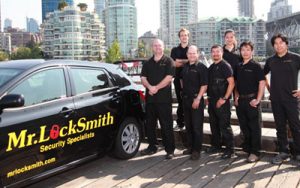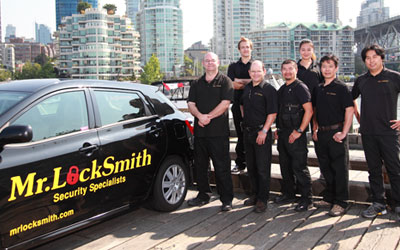1. Duties of a Locksmith
What is Locksmith? Locksmiths install, adjust and repair locks, make keys, and change lock combinations. They work on residential, automotive, commercial and institutional locksets and door hardware. Locksmiths may also install and maintain more sophisticated security systems.
Generally, the duties of a locksmith include:
- selling and installing high-security lock systems and key control systems, window bars, deadlocks, and keyless entry locks
- repairing, replacing, or adjusting damaged or defective components of an entrance or exit door, including door closers, hinges, electric release mechanisms and sometimes the door itself
- changing lock key combinations by inserting new pins into locks
- designing complex master key systems for industry, governments, and institutions
Specific duties of locksmiths vary depending upon the area in which they work.
2. Shop Locksmiths are responsible for:
– servicing and adjusting key machines
– repairing locks
– re-keying locks
– making keys for locks
– opening cylinders when keys are not available
– preparing master keys from code
– repairing or making keys for auto locks brought into the shop
3. Mobile Locksmiths are required to work from mobile units. In addition to the duties of shop locksmiths they are also responsible for:
– repairing locks in the field
– opening door locks with a lock pick
– opening and making keys for automobiles
– installing locks, door closers and emergency exit hardware
– replacing hinges and re-aligning doors
– installing security bars
– installing and repairing electric strikes and electronic security hardware
– servicing and changing combinations on safe and vault doors
4. Safe and Vault Technicians have additional training in safe and vault servicing, and troubleshooting. They are skilled in opening safes, rebuilding, painting, moving and installing safes.
Locksmiths who service bank equipment are skilled in mechanical and electronic time locks, time delay devices, night deposit units, combination and electronic and key locks for vaults and safes.
Locksmiths should be in reasonably good health as they are sometimes required to maneuver heavy objects and climb ladders. It is important that locksmiths have a willingness to keep learning about new developments in security equipment. Knowledge of electronics, welding, carpentry and metal working is an asset. Locksmiths should be reliable, accurate and honest.
5. Working Conditions
Locksmiths usually work a five-day week but may be on-call nights and weekends to respond to emergencies. Some locksmiths are self-employed and may be required to work longer hours and have clerical duties related to running a business.
Some shops, especially mobile units, may be small and crowded, requiring locksmiths to work around benches, counters and stock. They sometimes are required to work in awkward or confined spaces. Those working in mobile units may be required to work in adverse weather conditions.
6. Employment and Advancement
Locksmiths are employed by locksmithing companies, security firms, and institutions. The increasing awareness for preventative measures by the public to protect against theft is creating a need for more security measures; therefore, the demand for locksmiths is anticipated to remain fairly stable. Journeyman wage rates vary, but generally range from $12 to $25 an hour plus benefits. Experienced locksmiths can advance to supervisory positions or set up their own business. Those workers who run their own small business have a much larger earning potential. Most locksmiths consider this to be a life-long occupation.
Information for wages is based on 1996 Census data for British Columbia. The wages are calculated based on full year, full time employment. Wages may vary from company to company


